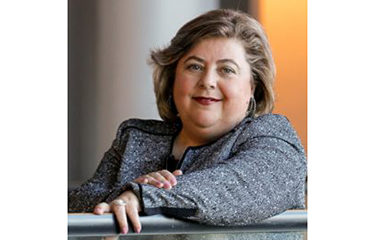ICCAT urged to adopt harvest strategy for bluefin tuna

The Pew Charitable Trusts and Member of European Parliament Clara Aguilera are among those leading a call for the International Commission for the Conservation of Atlantic Tunas (ICCAT) to adopt a bluefin tuna harvest strategy at its November 2022 meeting.
Pew and Aguilera co-hosted a 9 September webinar that included scientists and representatives from various segments of the European Union bluefin fishing and ranching industry to call for ICCAT to take action to improve its management of Atlantic bluefin tuna, a species that was in decline for decades as the 52 member governments of ICCAT sought unsustainable quotas.
However, since ICCAT adopted a rebuilding plan in the eastern Atlantic and Mediterranean in 2009, stocks have rebounded. Yet the quotas are still subject to political agreement among the members. Adoption of a harvest strategy, a pre-agreed science-based set of rules for setting quotas based on the likelihood of achieving long-term stock targets, would end yearly quota negotiations and fundamentally shift how ICCAT does its work, Aguilera said.
Aguilera criticized ICCAT’s rejection of a management plan proposed by the E.U. and complained of a lack of transparency in the way that the quota is approved.
“We only learn about it after it is approved,” she said.
Eider Andonegi, a sustainable fisheries researcher with AZTI, a Spanish research and technological center that develops sustainable products, services, and business initiatives, said a management strategy evaluation or harvest strategy could be called “the flight simulator for fisheries management,” providing a scientific approach to quota allocation.
University of Cape Town Professor Doug Butterworth said that the harvest strategy development process involves scientists, fisheries managers, and the industry, and that it is iterative, with the goal of finding the best balance of probabilities among conflicting goals – including eliminating overfishing, maintaining stock above a certain reference point, and maximizing the overall catch. A harvest strategy for bluefin tuna could also account for mixing between the west and east Atlantic populations, he said.
Anders Jessen of the Directorate-General for Maritime Affairs and Fisheries, the lead representative of the European Commission (EC) on international fisheries, said it would take significant testing of the computer models being used to determine the optimal quotas.
“It is a big step of faith to trust the software, to take your hand off the wheel,” he said.
Rocío Béjar Ochoa, a large-scale fisherman from Spain, praised the work done to recover the Atlantic bluefin population, but complained fishing rules are becoming overly complicated.
“We avoided repeating the past. Now there is a big biomass, so it has been successful. It is an example of what can be achieved,” Ochoa said.
AquaBioTech Group CRO Director Simeon Deguara, representing the ranching sector in Malta, stressed the need for sources of information to be more complete and pushed for ICCAT to allocate money to the Standing Committee on Research and Statistics (SCRS) to continue its work researching bluefin tuna. He also promoted using landing reports and observer reports with private data deleted to augment existing data sources.
Grantly Galland, a senior officer for The Pew Charitable Trusts international fisheries project, has previously criticized regional fisheries management organizations, including ICCAT, for moving too slow to protect vulnerable fish stocks. But he said the group’s work to recover the Atlantic Ocean’s bluefin population is an undeniable success.
“The recovery of bluefin tuna in the Mediterranean Sea and the eastern Atlantic is a landmark moment in fisheries management. Thanks to the efforts of managers at the International Commission for the Conservation of Atlantic Tunas, this valuable population has gone from the brink of collapse to a healthy state,” Galland said. "Now, these same managers must finalize their work and ensure future sustainability for this iconic species by adopting a pre-agreed, long-term harvest strategy for Atlantic bluefin at its meeting in November. In doing so, they will set a global precedent for modernized management.”
Photo courtesy of European Food Forum






Share